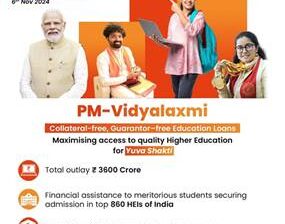Bhubaneswar: Xavier School of Human Resource Management (XAHR), Xavier University, Bhubaneswar (XUB) conducted its annual HR Symposium in the newly-minted, mini-auditorium at the Xavier City campus, on the august morning of July 20, 2018.
Attended by both the batches of MBA-HRM, the diverse gathering was graced by the presence of industry veterans and faculty members, including Dr. Snigdha Pattnaik (Dean, XAHR), Fr. E. A. Augustine, S.J. (Registrar, XUB), Dr. Mukesh Biswas (Manager Administration, Oil India Limited), Mr. Satyakki Bhattacharjee (Chief People Officer, ABP News), Ms. Poonam Gupta (Regional HR Director – Asia Pacific, Metso), Mr. Sandeep Patnaik (General Manager – HR & Skill Development, Hindustan Aeronautics Limited), Ms. Rashima Mishra (Co-founder/ Executive Director and Head of Brand Communication & Organisational Development, Milk Mantra Dairy Pvt. Ltd.), and Mr. Banabas Acharya (AGM – HR, Jindal Steel and Power Ltd.).
The symposium started by the lighting of the ceremonial lamp, followed by an address delivered by Fr. Augustine, S.J., who elucidated how the theme of “Valuing People” is pertinent not only to human resources, but to every function in an organization. He stressed on how it’s important to value people beyond organizations. Dr. Pattnaik succinctly stressed on the core philosophy of holding a function-specific symposium: a forum which brings together practitioners from multi-faceted domains, helping students connect the dots, before opening the symposium to the panel discussions.
The first panel, consisting of Mr. Acharya, Ms. Mishra, and Mr. Patnaik, threw a spotlight on “Employee Happiness in Organizations”. The moderator of the panel, Prof. Sanket Sunand Dash (Assistant Professor, XAHR) initiated the discussion by highlighting the importance of happiness, by quoting the World Happiness Report, and inviting the panel to discuss further. Mr. Banabas Acharya, banking on his experience in the steel industry, spoke of how happiness is proportional to performance and commitments; and to ensure that employees are happy, HR needs to create frameworks to sustain employees, while ensuring they remain humble to their roots.
Ms. Rashima Mishra, whose company featured recently in Forbes and Wall Street Journal, stressed on the importance of recruiting right, and how HR needs to be in a parallel loop with the business, and not in a separate orbit. She also brought out how the lines between professional and personal happiness are getting blurred.
Finally, Mr. Sandeep Patnaik introduced the gathering to the PERMA model (Positive emotion, Engagement, Relationships, Meaning and Accomplishments), and how organizations can impact employees’ happiness and self esteem through public recognition programs.
The panel briefly touched upon contractual workers, and how organizations can strive towards giving them a better quality of life and job security, which they believe is correlational to the happiness which “bottom-line” employees are looking for.
After the engaging polemics, the second panel, moderated by Ms. Ishadarshi Mishra (Learning Manager – ETS Academy, Unilever), discussed on “Valuing Solid Citizens in Organizations”. The panel, consisting of Dr. Biswas, Mr. Bhattacharjee, and Ms. Gupta, pondered on the point raised by Ms. Mishra, wherein she brought out how organizations cannot afford to lose the human element in HR.
Ms. Poonam Gupta drew an analogy between sports, family and the corporate structure, highlighting how each of them is an organization. She defined “solid citizens” as someone who have been in the company, and have garnered knowledge through their experience, and are not necessarily mediocre performers. She stressed on how organizations need to retain their solid citizens by peer-to-peer recognition, and other engaging activities. According to her expert judgement, the biggest worry an organization can have is to find the right successor to incumbents, who are solid citizens.
Mr. Satyakki Bhattacharjee and Dr. Mukesh Biswas contemplated how solid citizens and solid performance can be seen differently in private sectors and public-sector undertakings. While the former stresses on delivering consistent performance, especially in a function which is competitive in nature, the latter focuses more on enabling below-average performers to get back to the curve. Both of them agreed that not all roles are suitable for the “mainstream” star-performers, and it’s the solid citizens who run the show from behind the scenes.
The students of XAHR, who got the opportunity to see industry honchos in their candid selves, kept the discussion going, by asking germane questions; bringing in their mix of conceptual theories and summer internship experiences.
The panels, while appreciating the two topics themes of the discussion, stressed how they shouldn’t be seen as two stand-alone islands, but a flow from one pertinent theme to another.









